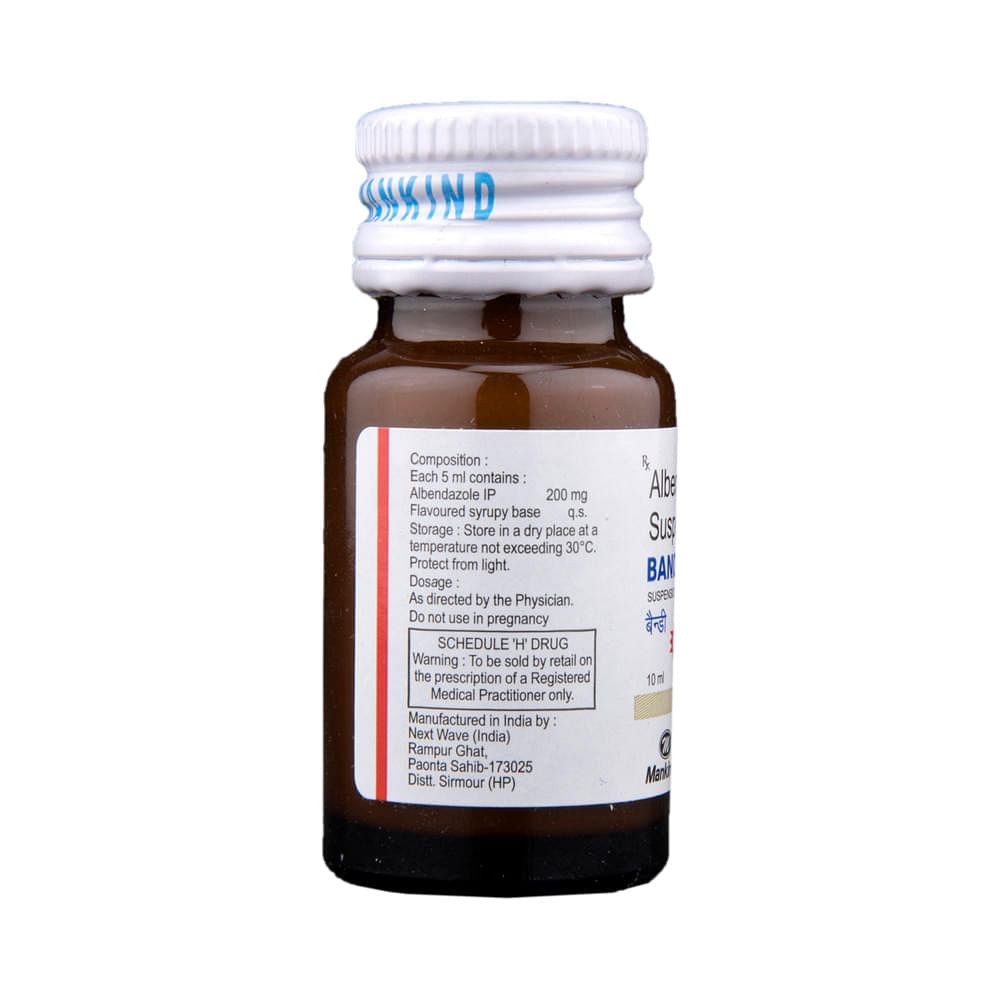
Frazol 200mg Oral Suspension
Manufacturer
Frank Medilink
Salt Composition
Albendazole (200mg)
Key Information
Short Description
Frazol 200mg Oral Suspension is effective against a range of parasitic worm infections in children, helping to eliminate the worms from the body.
Dosage Form
Oral Suspension
Introduction
Frazol 200mg Oral Suspension is a medication used to treat various parasitic worm infections in children. It works by preventing the worms from absorbing essential nutrients, leading to their death and eventual removal from the body through stool. This medicine is generally well-tolerated, but it is important to follow the prescribed dosage and complete the treatment course to avoid re-infection. Some self-care measures and hygiene practices can help prevent the spread of worm infections among family members.
Directions for Use
Give this medicine to your child with a fat-containing food such as milk to enable better absorption. Follow the prescribed dosage strictly and complete the treatment course to avoid re-infection.
How it works
Frazol 200mg Oral Suspension works by preventing the worms from absorbing sugar (glucose), thereby depleting their energy levels. This causes the worms to die, treating the infection.
Quick Tips
Give this medicine to your child with a fat-containing food such as milk for better absorption. Follow the prescribed dosage strictly and complete the treatment course to avoid re-infection. Worm infections can spread easily among family members; consider treatment for all family members. Encourage your child to wash their hands with soap and water after using the toilet to prevent cross-infection. Maintain hygiene and a neat space around your child to prevent worm infections.
Related Medicines

Bandy Suspension

Adrid 200mg Oral Suspension

Croban 200mg Oral Suspension

Albemed 200mg Oral Suspension

Avoban 200mg Oral Suspension

Novoworm Oral Suspension

Bendal 200mg Oral Suspension

Biobend Oral Suspension

Bendicare 200mg Oral Suspension

Dbandazole 200mg Oral Suspension
Frequently asked questions
How can I identify if my child has a worm infection?
If your child experiences symptoms such as an itchy bottom, difficulty sitting, fatigue, restless sleep due to anal itching, persistent stomach pain with loss of appetite or frequent indigestion, or pica (eating inedible substances), it may indicate a worm infestation. Consult your child's doctor immediately if you notice any of these symptoms. The doctor may request stool and blood samples on three separate days for examination. Based on the test results, the doctor will determine the appropriate treatment and prescribe medication.
How can my child contract intestinal worms?
Children are typically more susceptible to infection. The infection can be transmitted through the eggs of worms present in human feces that contaminate soil in areas with poor sanitation. Transmission can occur by drinking contaminated water or eating contaminated fruits and vegetables without washing or peeling. Your child may also become infected by playing in soil contaminated with worm eggs. After playing, ensure your child washes their hands thoroughly with soap and water.
What does deworming mean?
Deworming is the process of killing and expelling worms from the body. Frazol 200mg Oral Suspension is a commonly used medication for deworming treatment in children.
Can other medicines be given with Frazol 200mg Oral Suspension?
You can give your child pain relievers and fever reducers unless your doctor has advised against it. However, some medicines should not be taken with Frazol 200mg Oral Suspension. To minimize the risk of side effects, consult your child's doctor before giving any other medications.
What is the best time to give Frazol 200mg Oral Suspension to my child?
Frazol 200mg Oral Suspension can be given at any time of the day, but it is recommended to administer it with a fat-containing food, such as milk.
Who should not take Frazol 200mg Oral Suspension?
Frazol 200mg Oral Suspension should not be given to children with a known allergy to albendazole or similar medicines like mebendazole or thiabendazole. Signs of an allergic reaction may include an itchy skin rash, shortness of breath, and swelling of the face or tongue. Inform your child's doctor about any medical conditions and medications they are taking before administering the medicine.


